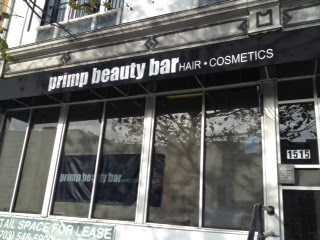By
Dr. Edward Tony Lloneau
The Korean Beauty Supply
Industry is very strong; in fact, the largest beauty supply network in this
country is Korean. Jenny’s Beauty Supply
with 8 distribution warehoused in 8 major cities is a strong example. Sally’s Beauty Supply is the largest beauty
supply chain of stores in America, with over 2,300 stores in the U.S. But collectively the Koreans have over three
times that many. Most are bigger and
stock a larger variety of products, including local and regional products. However, the Korean stores for the most part
are located in mostly Afro American communities. The reason for this is because the main focus
of sales are for commercial hair, ie… wigs, hair for weaves, braids, extensions
and all forms of hair augmentations. Afro American woman are the major consumers of
these items. The Koreans control the
major source of import of this hair through there home land of Korea. Afro Americans are only 12% of the country’s
population, but are consumers of over 33% of hair care products in America. These facts make for good business sense for
the Korean Beauty Supply Stores to be located in the Afro communities. Koreans
control 60% of the beauty supply industry in America, but they are only 3% of
the population.
With the preceding in mine,
this leads us to the reason for this article.
When the Korean’s first came to this country in groups after the Korean
War and the North Korean conflict in the late 1960s, they discovered the
demographics of commercial hair and the correlation of hair and hair care
products as it related to the Afro consumer, and they opened stores in the predominately
Afro communities to service that demographic.
At first the community was apprehensive and untrusting of the Koreans
whom they felt had infiltrated there turf.
Also most of the Koreans could not speak English, so communication was
difficult. But because the Korean stores
had what the populist wanted and needed without having to go outside of the
area and at competitive prices the blending of the two cultures over time
became acceptable.
The first generations of
Koreans over came the many barriers of doing business in a some what hostel
environment dating back to the late 60’s and early 70’s. The second generation for the most part
assimilated into the family business and the language barrier became less of a
concern in the late 80’s and mid 90’s.
But when the third generation came on the scene, many of them had other
goals and ambitions that did not include the Beauty Supply Business. This was the beginning of the slow down of
the Korean dominated Beauty Supply Business.
Many of this generation went to Colleges and Universities and came out
with skills and diplomas that related to high Tec Industries and professional careers. In fact, Asians are the second largest
minority enrolled in institutes of higher learning in America.
Another factor that leads to
the slow down of the Korean Beauty Supply business is OVER SATURATION years ago
the Koreans were careful not to compete against each other in the same
vicinity, but now they are competing within a close proximity of each other. The Korean Beauty Supply market is over
saturated in the Afro community especially in large metropolitan areas.
Another factor that leads to
the slow down of the business is that when the Koreans first set up shop in the
Afro communities the community was over 90% black. But now many areas are less than 50%
black. They have been replaces by the
growing Hispanic population. Hispanics
have a different and much less need for the hair care products that translates
to fewer sales coming from the community.
Hispanics are the largest minority in America. The disappearing Afro
residence has assimilated into the mainstream population.
HOW TO ADDRESS THIS CONCERN;
try to stock products that relate to the Hispanic market. Hire sales people of that culture. Place window displays that relate to the
market. This still will not replace the
business from the lost Afro customer based on the information in the last
paragraph, but it will stabilize sales and lead to other opportunities that you
may not be aware of yet.
35 years ago the Afro community
had only a few Beauty Supply Stores scattered through out the area. Today there are locations in most every
shopping area large and small within that community. However, other mainstream communities in the
cities have changed very little in this regard.
Maybe that is where the new opportunities are. This will mean stocking high end items that
relate to the professional market only, (as a segregated section) as well as
general retail products. The draw back
is that rent and property costs are higher, but this can be over come due to
the higher income bracket of people in these communities.
You may not agree with the
suggestions here, but now you know how and why the market is in transition.













